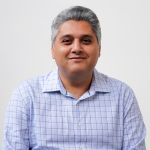Optimising weld sizes/details for enhanced structural performance and cost efficiency – the research of HERA Foundation Scholarship Recipient, Ahmad Sayadi
Meet Ahmad Sayadi, a dedicated and enthusiastic PhD student from the University of Waikato who has been awarded the prestigious HERA Foundation Scholarship for his groundbreaking research. Ahmad’s research focuses on a critical aspect of structural engineering – optimising weld sizes and details to achieve both superior structural performance and cost-effectiveness. This research is of paramount importance in the construction industry, where efficiency and safety are concerns.
Ahmad’s work seeks to investigate the effects of incomplete penetration of butt and fillet welded joints under various conditions, including double symmetric and asymmetric welds. To do this, he will employ a comprehensive approach, using both experimental tests and finite element analysis (FEA) as his primary investigative methods.
In the initial phase of his research, small-scale experimental tests will be conducted on cruciform and T-stub welded joints under cyclic loading conditions. Following the experimental phase, Ahmad will develop and validate finite element models using specialised software, such as ABAQUS, to simulate the welded joints. This modelling approach will enable him to perform an extensive parametric study that considers various factors, including weld penetration ratio, plate thickness, grade of steel, and weld size. This multifaceted approach will provide a deep understanding of how these parameters influence the performance and cost-effectiveness of welded joints.
One of the key aspects of Ahmad’s research is the comparison of weld sizes/details obtained from experimental and FE results with current design standard NZS 3404. This analysis will help identify areas where existing guidelines can be improved and optimised.
Furthermore, Ahmad’s research will encompass a reliability analysis, ensuring that the solutions he recommends are not only optimised for performance and cost but also meet rigorous safety standards. This is especially crucial for seismic connections, where welds play a pivotal role in preventing structural failure during seismic events.
As the recipient of the HERA Foundation Scholarship, Ahmad is poised to make a substantial contribution to safer and more cost-efficient construction practices, benefiting both the industry and society at large. We eagerly anticipate the results of his research and the positive changes it will bring to the construction industry.
This research is part of a larger Heavy Engineering Research Association (HERA) seismic research program, aiming to enhance our understanding of the structural behaviour and failure mechanisms of welded joints under various conditions. It also strives to develop design recommendations and suggest optimum weld sizes for seismic connections, potentially revolutionising the way we build and ensure structural integrity.


